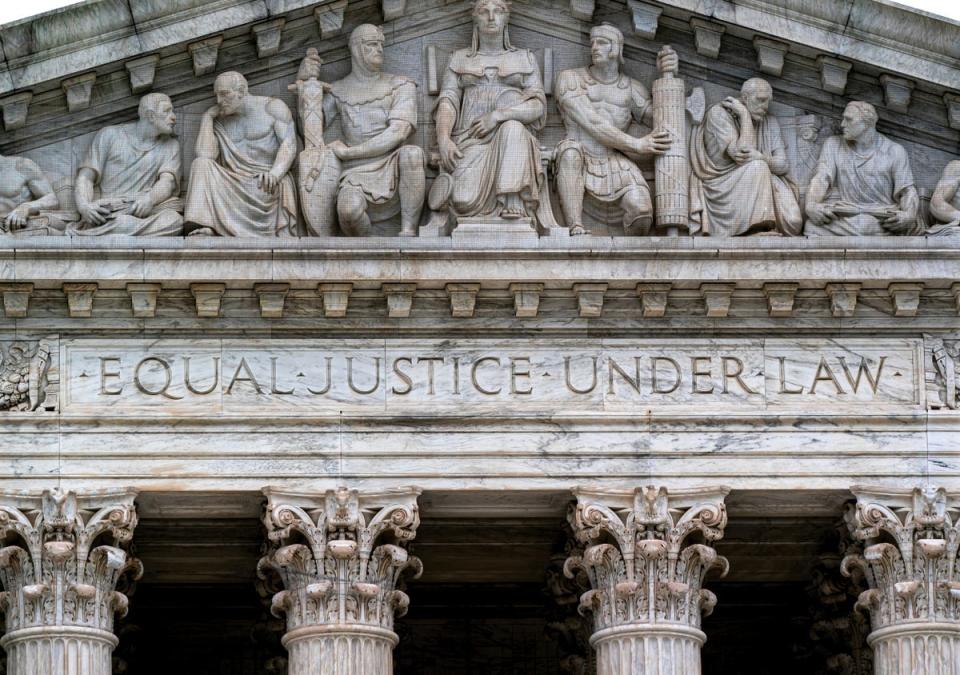US Supreme Court blocks Texas social media law against political speech removal

The Supreme Court blocked a Texas law that bars social media companies from removing political speech after tech industry groups warned the law could enable hate content on these platforms.
The Texas law prevented social media giants like Facebook and Twitter, as well as other platforms, from blocking content based on “viewpoint”.
It was passed by the state’s Republican-led legislature and signed by Republican governor Gregg Abbott last year, after conservative commentators complained “Big Tech” suppressed right-wing views.
They cited Twitter’s suspension of former president Donald Trump from the platform after the 6 January Capitol riot last year as one such example.
In the latest move, the US Supreme Court sided with technology industry groups, including NetChoice and the Computer & Communications Industry Association (CCIA), who argued that the Texas law could turn social media platforms into “havens of the vilest expression imaginable”.
In a 5-4 vote, judges have granted a request by tech industry groups to block the law, while three conservative Justices – Samuel Alito, Clarence Thomas and Neil Gorsuch – filed a written dissent.
BIG NEWS: SCOTUS rightly reinstated our stay on HB20, the unconstitutional law out of Texas that would force social media sites to host extremist speech if allowed to take effect.
Here’s our statement:https://t.co/wNyf3WKHQD— NetChoice (@NetChoice) May 31, 2022
Justice Alito said he was skeptical of the argument that social media platforms have editorial discretion that is protected by the First Amendment, something enjoyed by newspapers and other publishers.
Liberal Justice Elena Kagan also joined in the dissent, but has not explained her rationale.
The Texas law, known as HB20, forbade large social media platforms with at least 50 million monthly active users from censoring users based on “viewpoint” and allowed users or the Texas attorney general to sue to enforce it.
NEW: The Supreme Court BLOCKS Texas from enforcing a controversial new state law that seeks to ban large social media platforms like Twitter from moderating content based on users' viewpoints.
In a surprising vote breakdown, Kagan joins Thomas, Alito, & Gorsuch in dissent.— SCOTUSblog (@SCOTUSblog) May 31, 2022
“There is a dangerous movement by some social media companies to silence conservative ideas and values. This is wrong and we will not allow it in Texas,” Mr Abbott had said last September when he signed the bill.
Tech industry groups said the law would allow for government control of private speech and restrict their editorial control.
“The government cannot force American businesses to host and spread a mass murderer’s vile manifesto, [Russian president Vladimir] Putin’s anti-west propaganda, or an antisemite’s Holocaust denial,” Chris Marchese, Counsel at NetChoice, said in a statement.
“As we debate how to stop more senseless acts of violence, Texas’s law would force social media to host racist, hateful, and extremist posts,” Adam Kovacevich, chief of Chamber of Progress, a lobbying group for tech companies, told NPR.

 Yahoo Finance
Yahoo Finance 